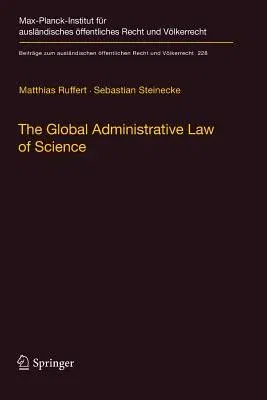Matthias Ruffert
(Author)The Global Administrative Law of Science (2011)Paperback - 2011, 2 August 2013

Qty
1
Turbo
Ships in 2 - 3 days
In Stock
Free Delivery
Cash on Delivery
15 Days
Free Returns
Secure Checkout
Part of Series
Beiträge Zum Ausländischen Öffentlichen Recht Und Völkerrech
Part of Series
Beitrage Zum Auslandischen Offentlichen Recht Und Volkerrech
Print Length
146 pages
Language
English
Publisher
Springer
Date Published
2 Aug 2013
ISBN-10
3642269044
ISBN-13
9783642269042
Description
Product Details
Book Edition:
2011
Book Format:
Paperback
Country of Origin:
NL
Date Published:
2 August 2013
Dimensions:
23.39 x
15.6 x
0.84 cm
ISBN-10:
3642269044
ISBN-13:
9783642269042
Language:
English
Location:
Berlin, Heidelberg
Pages:
146
Publisher:
Series:
Weight:
226.8 gm

